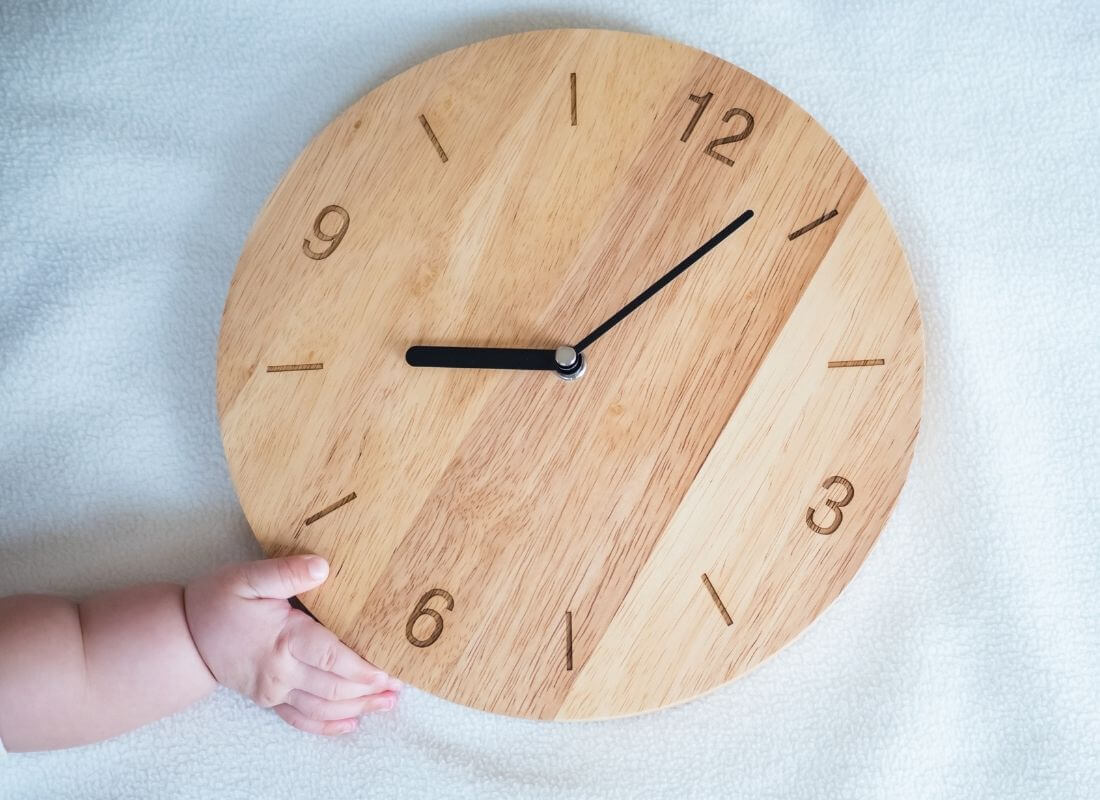
Supporting young children with the Autumn backward clock change
|
|
Time to read 3 min
|
|
Time to read 3 min
The clocks are due to ‘fall’ back on Sunday 26th October 2025. This is a time when many people look forward to the change, crediting it with an extra hour in bed. However, parents of young children often describe how they experience an extra hour awake, with the clock change causing havoc with their children's delicate schedules.
This can be even more pronounced for parents of children who are early risers, as after the clock change, their children may remain on the old time zone, bringing wake time an hour earlier – for example a 6.30am wake, could now become a 5.30am wake!
The key to managing any change relating to infant sleep, is to find what works best for your individual child and individual family.
With this option, you simply change your child's schedule unto the new time zone in one move. When the clocks change, offer the nap at 12noon as usual, no matter what time they woke. This allows them to keep their original schedule but on the new time.
For example:
This approach is best suited to children who respond well to changes in their schedule and/or who follow a loose schedule which changes on any given day. Some children may not respond well to this approach as may simply be overtired when you offer the nap / bedtime initially (12 noon on the new time zone would be 1pm on the previous schedule).
Overtiredness can make it more difficult for your child to fall asleep and can promote more frequent night waking's and early rising. If you suspect your child is overtired using this strategy, then they may be better suited to Option 2….
This approach supports a gradual transition. This is achieved by adapting their current schedule by just 10 minutes per day, starting 1 week before the clocks go back.
You will move the entire schedule - including meals and snacks by 10 minutes per day, continuing to add 10 minutes each day, until the new schedule is 1 hour later than what it was previously. So when the clocks ‘fall’ back, the child will return to their original schedule.
For example:
A disadvantage of this option is that some children will simply not stay asleep for the extra period of time in the morning. To help their internal clock to adjust, you could try keeping them in a dark environment until their desired wake time, and even moving the rest of the schedule to help their bodies adapt.
Some children are so sensitive to change that it may work better for them if they work in just 5 minute increments over 2 weeks, instead of 1.
Some parents prefer to go with the flow and adapt their child's schedules on any given day as consistent with their daily activities or child's sleep cues. Therefore, the clock change may not be particularly relevant to them.
Other families may already be working of a late schedule and wish to take advantage of one a little earlier. Therefore, it may work for you to allow your child to simply keep this schedule but in the new time zone.
For example:
The approach which works best for you, will depend on your individual family. In any case here are some tips which may help:
Many families dread the clocks falling back; however it may actually promote sleep for your little one. Humans naturally respond well to light in the day, and dark at night. A dark environment can help the body prepare for night sleep. The summer clock change promotes more light in the evening, which may impact your little one’s bedtime routine. A dark environment on the run up to bed, may be beneficial for some children.
Whatever option you pick, we hope the change goes smoothly for your family.


